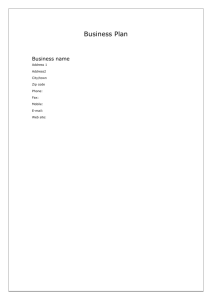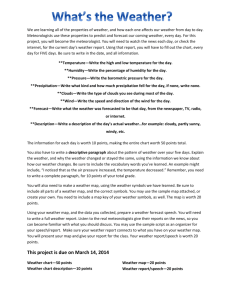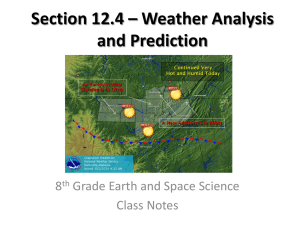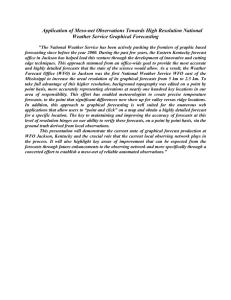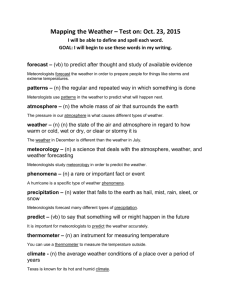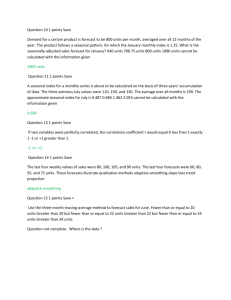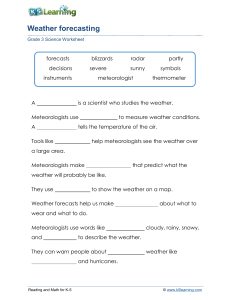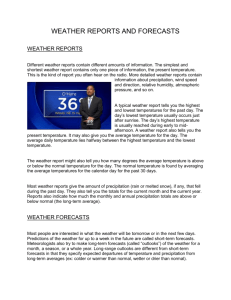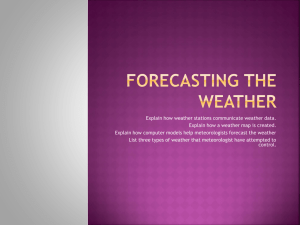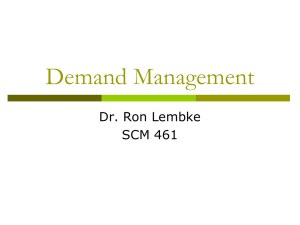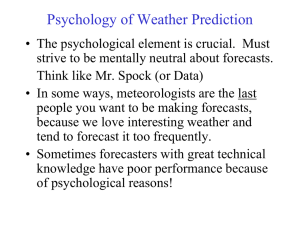Lesson 2 - WordPress.com
advertisement
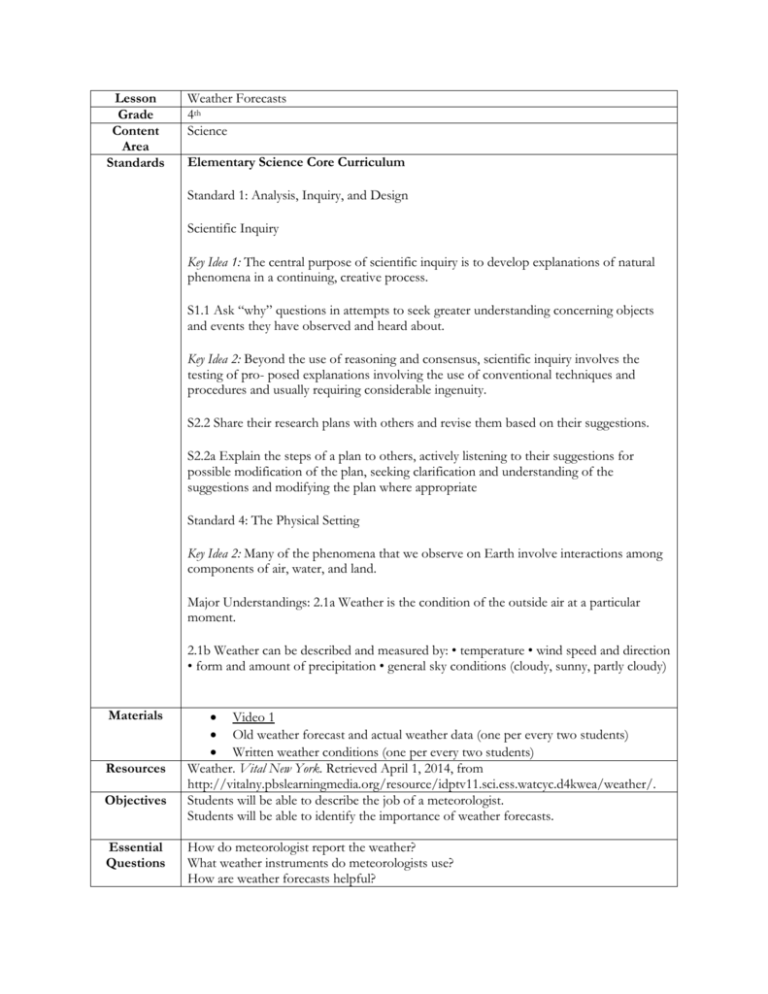
Lesson Grade Content Area Standards Weather Forecasts 4th Science Elementary Science Core Curriculum Standard 1: Analysis, Inquiry, and Design Scientific Inquiry Key Idea 1: The central purpose of scientific inquiry is to develop explanations of natural phenomena in a continuing, creative process. S1.1 Ask “why” questions in attempts to seek greater understanding concerning objects and events they have observed and heard about. Key Idea 2: Beyond the use of reasoning and consensus, scientific inquiry involves the testing of pro- posed explanations involving the use of conventional techniques and procedures and usually requiring considerable ingenuity. S2.2 Share their research plans with others and revise them based on their suggestions. S2.2a Explain the steps of a plan to others, actively listening to their suggestions for possible modification of the plan, seeking clarification and understanding of the suggestions and modifying the plan where appropriate Standard 4: The Physical Setting Key Idea 2: Many of the phenomena that we observe on Earth involve interactions among components of air, water, and land. Major Understandings: 2.1a Weather is the condition of the outside air at a particular moment. 2.1b Weather can be described and measured by: • temperature • wind speed and direction • form and amount of precipitation • general sky conditions (cloudy, sunny, partly cloudy) Materials Resources Objectives Essential Questions Video 1 Old weather forecast and actual weather data (one per every two students) Written weather conditions (one per every two students) Weather. Vital New York. Retrieved April 1, 2014, from http://vitalny.pbslearningmedia.org/resource/idptv11.sci.ess.watcyc.d4kwea/weather/. Students will be able to describe the job of a meteorologist. Students will be able to identify the importance of weather forecasts. How do meteorologist report the weather? What weather instruments do meteorologists use? How are weather forecasts helpful? Procedure Assessment Students will watch video 1 at home the previous night. Students will be asked to write a short response to why it is important to predict the weather and bring it to class the next day. Students will be given an old weather forecast along with the actual weather for each day of that forecast. Students will analyze the forecasts on their own and then discuss how the forecasts were correct/incorrect with a partner. In pairs, students will then be given certain conditions that can be used to predict the weather. With their partner, students will develop a plan that they would use if they were meteorologists and wanted to create a forecast. Students will be given additional information (texts, pictures, etc.) on weather instruments used to predict weather. Students will then share their plans with the class. As a ticket out the door, students will be asked to write down why the job of a meteorologists is important.
